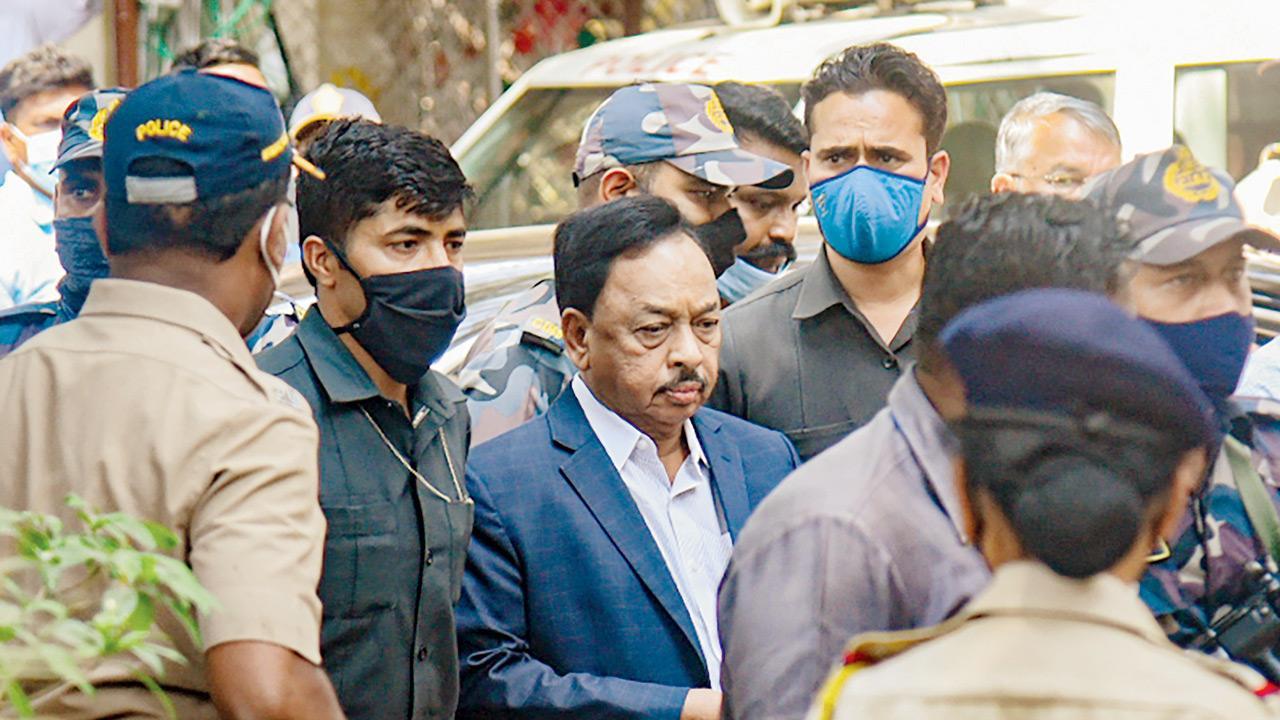Father-son duo arrived at Malwani Police station to record statements in FIR filed by Disha’s mother

Union Minister Narayan Rane seen at Malwani police station on Saturday. Pic/PTI
Union Minister Narayan Rane and his son Nitesh Rane presented themselves before the Malwani Police on Saturday to record their statements in an FIR registered by Disha Salian’s mother Vasanti Satish,52, on February 27.
ADVERTISEMENT
The minister had, in a press conference, claimed that Salian, who was ex-manager of late actor Sushant Singh Rajput, was gangraped and murdered. Following the allegations, Salian’s parents had approached the Malwani police and registered an FIR against the Rane and his son Nitish.
In her statement to the police, Salian’s mother said that Rane’s comments had tarnished her daughter’s reputation and character. The Malwani police registered the complaint after a court directed to register an FIR against the two under Sections 211, 500, 504, 509, 506 (2) and 34 of the Indian Penal Code read with section 67 of the Information Technology Act for defamation and words leading to insulting the modesty of a woman, criminal intimidation and common intention.
The father-son duo arrived at the Malwani police station around 2 pm, along with several supporters, to record their statements. On Friday, the Dindoshi sessions court had restrained the Mumbai Police from arresting the father-son duo. The directive came after a special public prosecutor Pradip Gharat sought time to reply to the anticipatory bail application filed by the Ranes. On the prosecutor’s request, the court posted the pre-arrest bail pleas for hearing on March 10.
In their plea, they told the court that “even assuming that such allegations are correct, for the sake of argument, no reasonable person could come to the conclusion that any offence whatsoever has been made out in respect thereof”. “Prima-facie no case has been made out against the applicant in the present matter,” the plea stated, adding the FIR makes it clear that it had been registered with other motives and to restrict their movement.
 Subscribe today by clicking the link and stay updated with the latest news!" Click here!
Subscribe today by clicking the link and stay updated with the latest news!" Click here!







